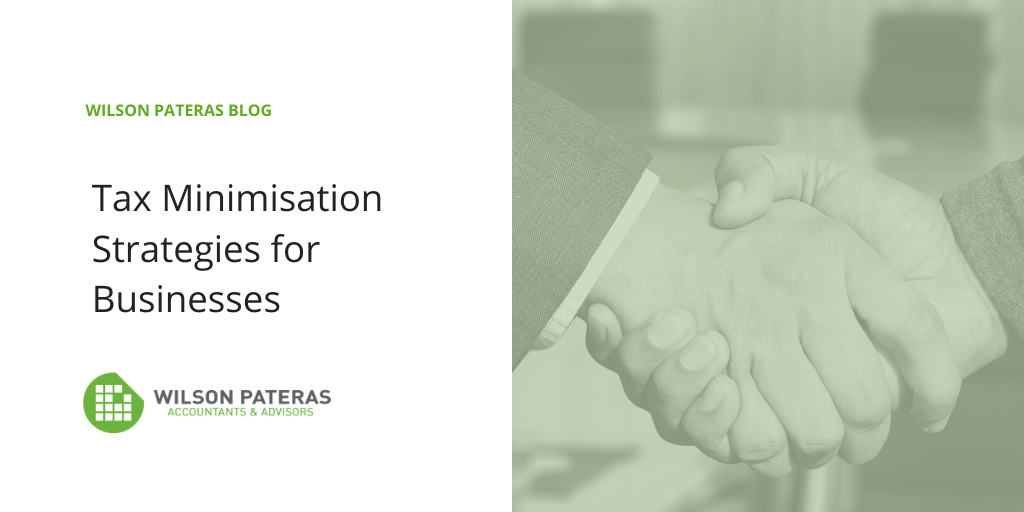
If you are running a business, it is legal (and sensible) to implement tax minimisation strategies. Effective tax planning with a qualified accountant/tax specialist can help you to do that. Business is tough enough without paying more tax than you are legally obliged to pay.
Tax avoidance on the other hand is illegal and attracts heavy penalties from the Australian Tax Office (ATO). These penalties can range from fines to imprisonment for more serious offences.
Legal tax minimisation strategies
Below are examples of common and legal business tax minimisation strategies.
- Maximise your tax-deductible expenses
Business tax deductions are allowable business expenses that reduce your business profit/ income (and therefore your tax obligation). One significant development during 2020 was the federal government enhancing the instant asset write-off scheme.
Assets (such as motor vehicles and equipment) up to the value of $150,000 can now be immediately written off as tax deductions for businesses with an annual turnover less than $500 million. Previously the asset threshold limit for claiming the instant asset write-off was $30,000 and the annual business turnover limit was $50 million.
Other common tax-deductible business expenses include:
- employee salaries and wages
- travel expenses
- insurance
- interest on business loans
- rent for your business premises
- repairs and maintenance on business premises
- lease payments on machinery and equipment
- depreciation on major assets that cannot be written off under the instant asset write-off scheme.
Towards the end of the financial year, you can also pre-pay tax-deductible expenses that are due in the next financial year before June 30 (if you have the cash flow available). This strategy will maximise your tax deductions in the current financial year.
- Conduct an end of financial year stocktake
If the value of your unsold stock has decreased between the start and the end of the financial year, the difference can be claimed as a tax deduction.
On the other hand, if the value of your stock has increased, it must be classed as income.
- Set up a company
The company tax rate in Australia is 27.5% for businesses with an annual turnover less than $50 million. If you have a sole trader of partnership business structure, this may be a lower rate than you would pay under your individual marginal tax rate.
However, it is important to understand that there are costs for setting up a company as well as ongoing costs. The benefits of setting up a company (including potential tax savings) should outweigh these costs.
- Set up a discretionary trust to distribute business income
This is an alternative to setting up a company and allows you to distribute the income to trust beneficiaries with lower marginal tax rates, therefore reducing your personal tax liability.
- Reduce your capital gains tax (CGT) liability
One way to do this is to strategically time the sale of the asset to take advantage of tax concessions (e.g. there is a 50% CGT discount on assets held by business partners and trusts structures for more than 12 months).
Tax planning benefits
Effective tax planning can help you:
- to legally minimise your tax.
- have more money available to grow your business.
- to avoid any penalties for tax evasion.
How we can help
Our team of award-winning Melbourne accountants at Wilson Pateras can help your business to plan and implement legal tax minimisation strategies.
We provide tax planning services for both businesses and individuals.
Contact us today to discuss how we can help your business.



